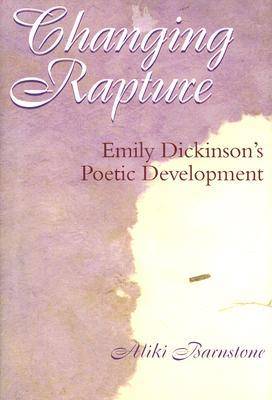Aliki Barnstone challenges the critical commonplace that Emily Dickinson's poetry did not change and evolve over the course of her career as a poet. She argues that this notion of her lack of development, while it contributes the established myth of the isolated and timeless Dickinson, has tended to diminish our appreciation of her as a poet and thinker, whose work is both an innovative artistic achievement and a cultural commentary. Throughout the book, Barnstone contextualizes Dickinson's evolving spiritual and poetic development within nineteenth-century American culture. Barnstone identifies four major phases in Dickinson's development, which are marked by her struggle against the Calvinist tradition in which she was raised and her growing involvement with Transcendentalism. In the first phase, Dickinson critiques Calvinism and Sentimentalism through satire. In the second, intensely prolific period, she experiences an intellectual crisis, in which she masters the Calvinist theology that vexes her through a process Barnstone terms "self-conversion."
In the third phase, the poet's work develops from a struggle with Calvinist self-annihilation and despair to a reworking of Emerson's Transcendental, exalted discovery of the self. Barnstone concludes her volume with an exploration of the recent debates over the textual problems in Dickinson's work, bringing them to bear on the canon of the poet's late work, which consists largely of letter-poems. Her whole life, Dickinson grappled with death, loss of loved ones, and the afterlife; at the end of her career, she developed her own intimate and relational form of literary immortality in letters.
- ISBN10 1584655348
- ISBN13 9781584655343
- Publish Date 1 April 2007
- Publish Status Out of Print
- Out of Print 15 June 2021
- Publish Country US
- Imprint University Press of New England
- Format Hardcover
- Pages 256
- Language English
